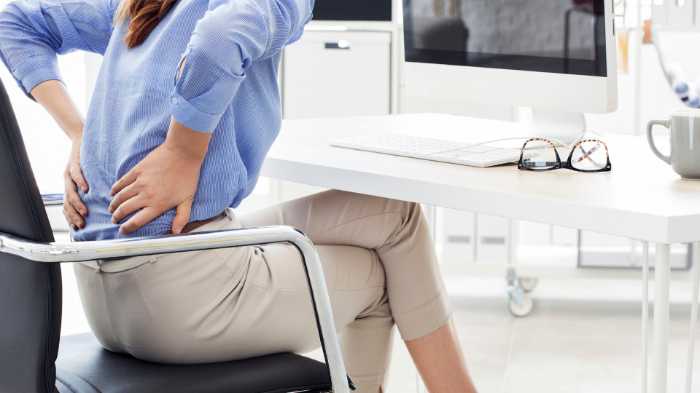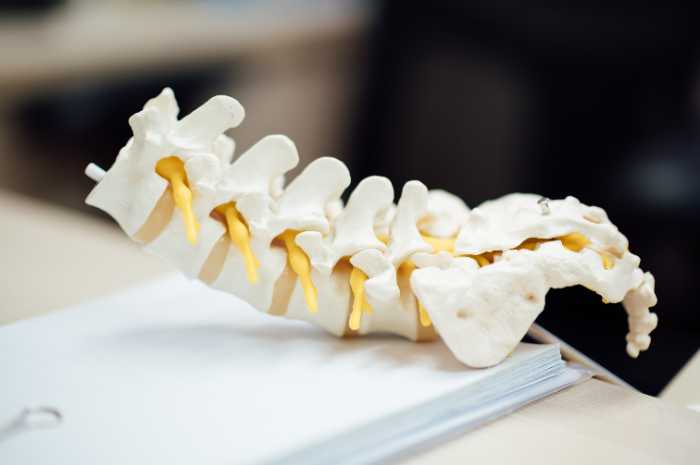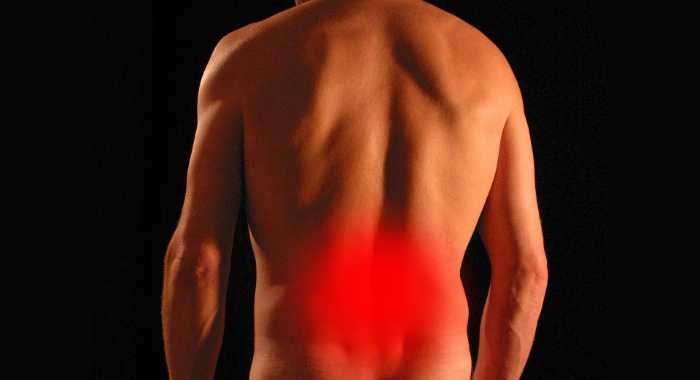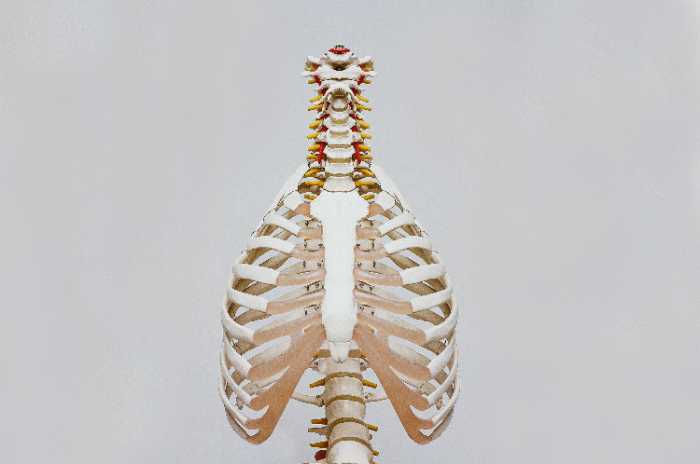If you are experiencing pain in your back, it is important to determine the cause of this pain. One common condition that can cause sharp pain in the back (herniated lumbar disc) is a slipped disc. In this blog post, we will discuss the 10 most common symptoms of a slipped disc. If you are experiencing any of these symptoms, please see a doctor as soon as possible.

Slipped Disc
A slipped disc is a condition that can occur when the soft inner material of a disc bulges out through a tear in the tougher outer layer. This can put pressure on nearby nerves like the sciatic nerve and lead to pain, numbness, and weakness in the affected area. Herniated discs most occur in the back, although they can also occur in other areas of the body. Disc herniation is often caused by wear and tear on the discs (degenerative disc disease) or by an injury. Treatment for a herniated disc may include conservative measures such as rest, ice, heat, physical therapy, or injections. In some cases, surgery may be necessary to remove the herniated portion of the disc.
The spinal canal is a long, thin tube that runs down the middle of the spinal column. It is surrounded by bone and contains spinal fluid, which cushions and protects the spinal cord. The spine is made up of nerves that distribute signals between the brain and the rest of the body. Normally, these nerves are protected by the bones of the spine and the spinal fluid. However, if a vertebra slips out of place, it may press on the spinal cord or spinal nerves, causing discomfort. This condition is known as a slipped disc. Slipped discs are relatively common, and they can occur at any age. However, they are most likely to affect people over 40 years old. Treatment for a slipped disc usually involves rest, ice, and pain relief medication. In some cases, surgery may be necessary to remove the pressure on the spinal cord or spinal nerves.
Slipped Disc Symptoms
One of the most common slipped disc symptoms is shooting pain. This pain usually radiates from the lower back and down the legs. Leg pain is also a common symptom. In some cases, a severe slipped disc can interfere with everyday activities. Another common symptom is numbness or tingling in the affected area. This may make it difficult to stand or walk for long periods of time. Additionally, you may feel muscle weakness around the affected area.
Some of the symptoms of slipped disc are:
- Leg pain
- Numbness or tingling
- Muscle weakness
- Arm pain
- Sharp pain when standing
- Difficulty in sitting
- Numbness in a part of the body
- Repetitive backache
- Pain when walking
- Sharp and shooting pain in the back
If you have a slipped disc, it is important to seek medical attention as soon as possible. Left untreated, a slipped disc can lead to permanent nerve damage.

Causes Of Slipped Disc
A slipped disc is a common spine injury. It occurs when the disc, which is a round, flat cushion between the bones in your spine, gets displaced and presses on the nerves around it. The most common cause of slipped disc is an injury to the back. This can include a fall, lifting something heavy, or sudden twisting or jerking motions. Other risk factors for slipped discs include being overweight, having osteoarthritis or other degenerative diseases of the spine, and smoking.
How To Treat Slipped Disc
A slipped disc is most commonly caused by wear and tear on the discs, but can also be caused by an injury. Treatment for slipped discs will depend on the severity of the condition. For mild cases, conservative treatment such as pain medication and physical therapy may be all that is needed. For more severe cases, spinal surgery may be necessary to remove the damaged disc and relieve pressure on the spinal cord or nerves. No matter what treatment is required, it is important to seek medical treatment as soon as possible to prevent further damage to the spine.
Risk Factors Of A Slipped Disc
Although a slipped disc can occur anywhere in the spine, it is most likely to happen in the lower back. This is because the discs in the lower back are subject to more wear and tear due to the greater amount of stress placed on them. There are several risk factors that can increase your chances of developing a slipped disc, including:
- Age: The older you are, the greater your risk of developing a slipped disc. This is because the discs in your spine begin to degenerate as you age, making them more susceptible to injury.
- Weight: Being overweight or obese puts additional strain on your discs, making them more likely to rupture.
- Occupation: If your job involves heavy lifting or repetitive motions, you may be at higher risk for a slipped disc.
- Smoking: Cigarette smoking reduces blood flow to the discs in your spine, making them more vulnerable to injury.

If you have any of these risk factors, it’s important to take steps to protect your spine and avoid injury.
Health Tips To Prevent Slipped Disc
A slipped disc, also known as a herniated disc, can be a painful and debilitating condition. The good news is that there are several things you can do to prevent a slipped disc from occurring in the first place. One of the most important things you can do is to maintain a good posture. When sitting, standing, or sleeping, be sure to keep your spine in alignment. You should also exercise regularly, as this helps to strengthen the muscles that support your spine.
If you do lift something heavy, be sure to use proper form and lift with your legs, rather than your back. Finally, if you are overweight, losing weight can help to reduce the strain on your spine and reduce your risk of a slipped disc. By following these simple tips, you can help to keep your spine healthy and prevent a slipped disc from occurring.

Final Thoughts
Although a slipped disc can be a very painful condition, it is important to remember that it is not a life-threatening condition. In most cases, the pain will gradually subside over time and the person will make a full recovery. However, if the pain is severe or lasts for more than a few days, it is important to see a doctor or spine specialist for an accurate diagnosis and to rule out any other serious conditions.
With proper treatment and care, a slipped disc does not have to be a debilitating condition and many people are able to lead full, active lives despite having this condition.
Read More: